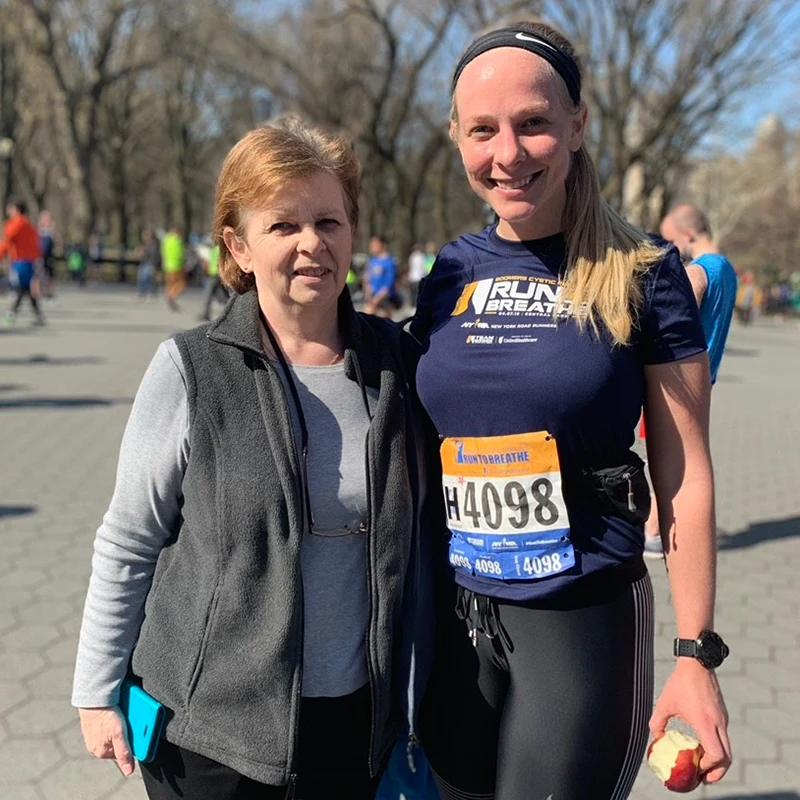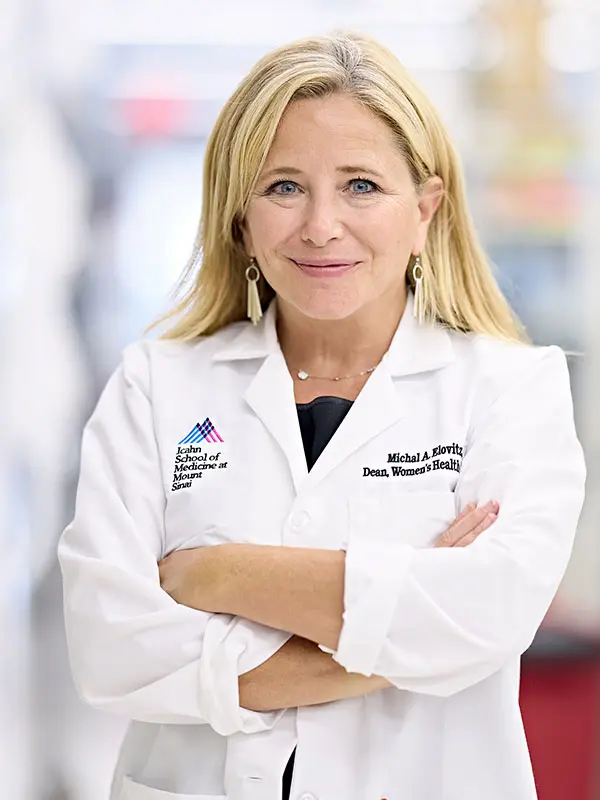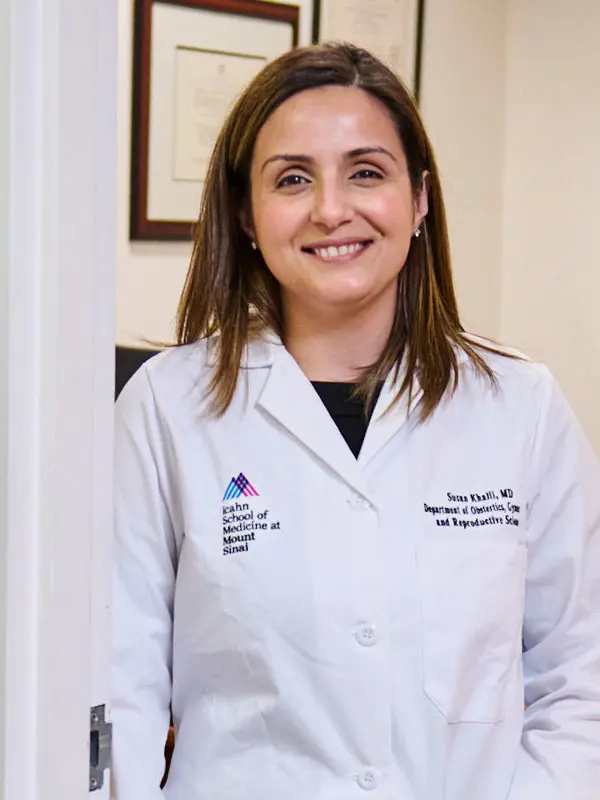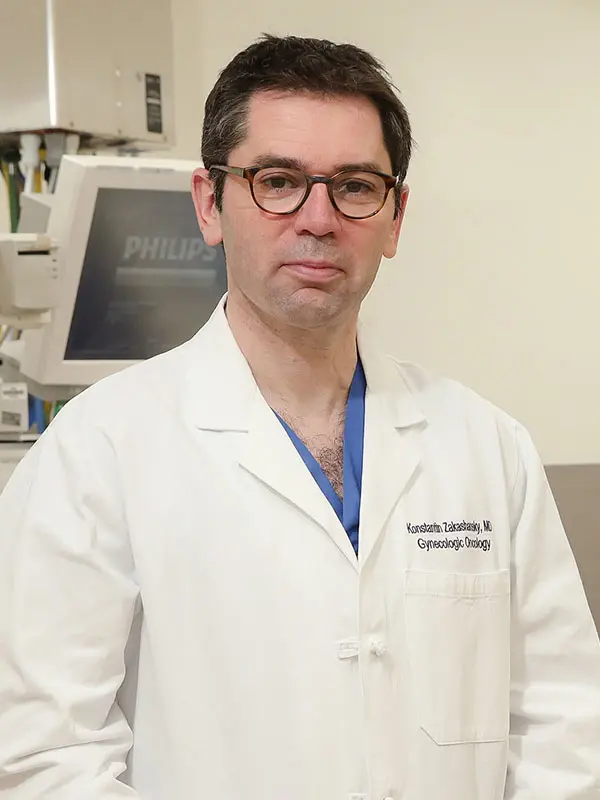The new Comprehensive BRCA Program offers multidisciplinary care for people with BRCA gene mutations, with the combined expertise of the Raquel and Jaime Gilinski Department of Obstetrics, Gynecology and Reproductive Science and the Mount Sinai Tisch Cancer Center.
It is well established that mutations in the BRCA1 and BRCA2 genes raise the risk for both breast and ovarian cancer, as well as prostate, pancreatic cancer, and more. A child of a parent with a BRCA mutation has a 50 percent chance of inheriting it. Mount Sinai’s program, launched in the summer of 2021, offers genetic testing and counseling for patients and family members, and comprehensive patient-centered care, including reproductive options, psychosocial support, and a physician team covering multiple areas of cancer risk—breast surgeon, gynecologic oncologist, dermatologist, urologist, and gastroenterologist.
“When people learn they have a BRCA mutation, they’re bombarded with information and the need to make many appointments. This program facilitates that by offering all of these services in one place. I think it gives patients a lot of comfort to know that their doctors are working together to optimize and personalize their care,” says Stephanie V. Blank, MD, Director of Gynecologic Oncology, Mount Sinai Health System, and Professor of Obstetrics, Gynecology and Reproductive Science, Icahn School of Medicine at Mount Sinai.
Karolina Krauze, 30, is a patient of Dr. Blank’s. Her mother, Urszula, had been as well, after being diagnosed with Stage 4 ovarian cancer in 2014 and testing positive for the BRCA1 mutation. Initially quite ill, Urszula underwent surgery and chemotherapy, and her condition improved to the point that she was able to go back to work. She lived until April 2020, when she succumbed not to cancer, but to COVID-19.

Karolina Krauze with her mother, Urszula, who was diagnosed with Stage 4 ovarian cancer in 2014, tested positive for the BRCA1 mutation, and died in 2020 of COVID-19. Karolina is a “previvor,” a person with a BRCA mutation who has not had cancer and is making crucial decisions about cancer screening and prevention.
“Dr. Blank gave my mom seven more years when the odds were not in her favor. I’ll never be able to thank her enough for that,” Karolina says.
In 2016, Karolina was tested for the BRCA1 mutation and found that she was positive. Later that year, Karolina underwent a prophylactic double mastectomy, an experience she describes as an “emotional rollercoaster,” and yet “I was so grateful that I was able to save my own life. My chances of developing breast cancer were so significantly high, and I was able to have that control and have that power to say ‘no, that’s not getting to me first.’”
In addition to the Mount Sinai team, Karolina credits The Breasties, a support group for people impacted by breast and gynecologic cancers, with helping her through the many emotional aspects of her journey.
In 2021, Karolina had her eggs frozen and, with the help of Dr. Blank, she is deciding when she will undergo removal of her fallopian tubes and eventually her ovaries. She also is considering enrolling in a national study of cancer risk reduction offered at Mount Sinai, the SoROCK trial, which is investigating whether removing the fallopian tubes offers the same risk reduction as removing both the tubes and ovaries in people with BRCA1 mutations, as well as the effect on quality of life. When Karolina chooses to have a child, she will be able to have her embryos tested for BRCA to ensure that her baby won’t carry the mutation, Dr. Blank says.
Karolina is a “previvor,” a person with a BRCA mutation who has not had cancer. As a previvor makes decisions about gynecologic cancer screening and prevention, multiple factors are at play. “We have assembled a previvor program with oncofertility, menopause medicine, sexual health, cardiology, and social work expertise to help our patients make these difficult decisions which can be both lifesaving and life altering,” Dr. Blank says.
Overall, Karolina says of Mount Sinai, “I have experienced a team of professionals that treated me like their family and would do anything to support my family, to help us out, to explain anything very thoroughly and I’m just very grateful. I feel very supported and taken care of and that I’m in the best possible hands for my future and for my well-being.”
Featured

Michal Elovitz, MD
Dean for Women’s Health Research

Susan Khalil, MD
Assistant Professor, Obstetrics, Gynecology and Reproductive Science

Konstantin Zachashansky, MD
Associate Professor of Obstetrics and Gynecology

Stephanie V. Blank, MD
Director of Gynecologic Oncology, Professor of Obstetrics, Gynecology, and Reproductive Science

Dmitriy Zamarin, MD, PhD
Head of Gynecologic Medical Oncology, Tisch Cancer Institute, Professor of Medicine, Hematology, and Medical Oncology
